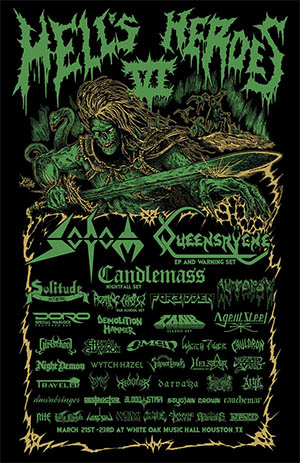
Crossing The Red Sea With The Adverts (Devils Jukebox, 1978)
Cast Of Thousands (Devils Jukebox, 1979)
One of the big myths of punk was that everyone was an amateur who didn’t know how to play their instruments, when in fact a good number of the punks were experienced musicians, some having already spent years on the pub rock circuit. The Adverts, however, were a classic exception of non-musicians who simply willed themselves into a great band with passion and determination. Their first single “One Chord Wonders” most likely refers to their January 1977 debut at The Roxy with the refrain, “Come back when you’ve learned to play.” T.V. Smith actually knew at least two chords by then, but was not yet able to sing and play guitar at the same time. Bassist (and Stooges fan) Gaye Advert and drummer Laurie Driver learned to play at the gigs. Remarkably, the band already had a batch of great original songs that all sounded like hit singles with catchy, anthemic choruses and a hectic, driven energy. This was enough to impress The Damned’s Brian James to invite them on tour, its poster reading, “The Damned can play three chords. The Adverts can play one. Hear all four at…”
With only a few months of experience, it really did seem like a miracle that The Adverts could produce an entire album. Much credit of Crossing The Red Sea’s success was given to producer John Leckie, who was known for his work with George Harrison, John Lennon, Pink Floyd, Be-Bop Deluxe and Doctors of Madness. His genius was in making relatively clean, uncluttered recordings that played on the band’s strengths of Smith’s breathless yet concise choruses framed by simple guitars and fast rhythms. There’s enough subtle sonic details that flesh out their sound to show why Leckie later became a choice producer for bands ranging from Magazine, P.i.L., Felt, The Fall, Stone Roses and Radiohead.
Aside from the singles “Gary Gilmore’s Eyes” (which was left off the original version of the album), “Bored Teenagers,” “Safety In Numbers” (a presciently rabid slash at biters and bandwagon jumpers) and “No Time To Be 21,” the album had enough variety to captivate through the last song. “On The Roof” starts with a slow, doom-laden bass groove before exploding into action, while the angular rhythms of the brilliant, intense “Newsboys” was inspired by Captain Beefheart and Pere Ubu. The Adverts’ debut is too often overlooked, as it equals or betters contemporary albums by The Clash, Sex Pistols, The Damned and The Buzzcocks. This deluxe double disc reissues includes the three original singles with B-sides “Quickstep” and “We Who Wait,” along with a short live performance. | Bandcamp

The remastered version of The Adverts’ second and last album, Cast Of Thousands calls for a critical reappraisal. Originally dismissed because it lacked the dervish punk energy of their debut, The Adverts were victims of the stifling conservatism of the punk scene without benefiting from canonization of post-punk the same way that Wire or Public Image Ltd. did. In hindsight, the album’s restless spirit can be heard in seemingly unlikely bands as The Arcade Fire. While the live shows remained fiery, the band’s sound changed drastically on record with the addition of keyboardist Tim Cross, and new drummer Rod Latter, who was less primal than his predecessor.
The result is more of an experimental art pop record, where each song had its own distinct sound. The Beatles had done this, but apparently it was not acceptable in punk. It’s hard to believe the opening title track, with its big sound, piano and choirs, is the same band that less than two years previously could barely play. The album certainly did not lack passion. If anything, T.V. Smith sounds even more excitable, like an evangelist preacher who had just caught on fire, but was determined to finish his sermon. “Fate of Criminals” is another mini-masterpiece, with truly creepy, processed chorus, and a surprising guitar solo that’s nearly rockabilly. “Love Songs” is a classic anti-love song with some very tricky time changes. “I Surrender” begins with bells, handclaps, and Smith’s captivating vocal melody before the band makes a dramatic entrance. The clanging sound is from a rat running lose in the reverb room. It sounds like a lost anthem.
Already aware that the band was sinking due to extremely negative reactions to their singles, Smith’s disenchantment culminates with his anguished cries in “I Looked At The Sun” while the rest of the band chants “Some-thing!” 25 years after the bitter disappointment of being deserted by fans and disemboweled by critics, hindsight has shown people warming up to the album, and even preferring it to Red Sea. In the liner notes, Smith wrote, “…each of these albums has a point to make, and I’m proud of them both. If they sound completely different to each other – well, so be it. We followed our instincts and created something unique. As far as I’m concerned, that’s punk.” | Bandcamp

March 29, 2024
Fester’s Lucky 13: 1994
January 4, 2024
Fester’s Lucky 13: 1989
December 1, 2023
Fester’s Lucky 13: 2023 Year-End Summary



